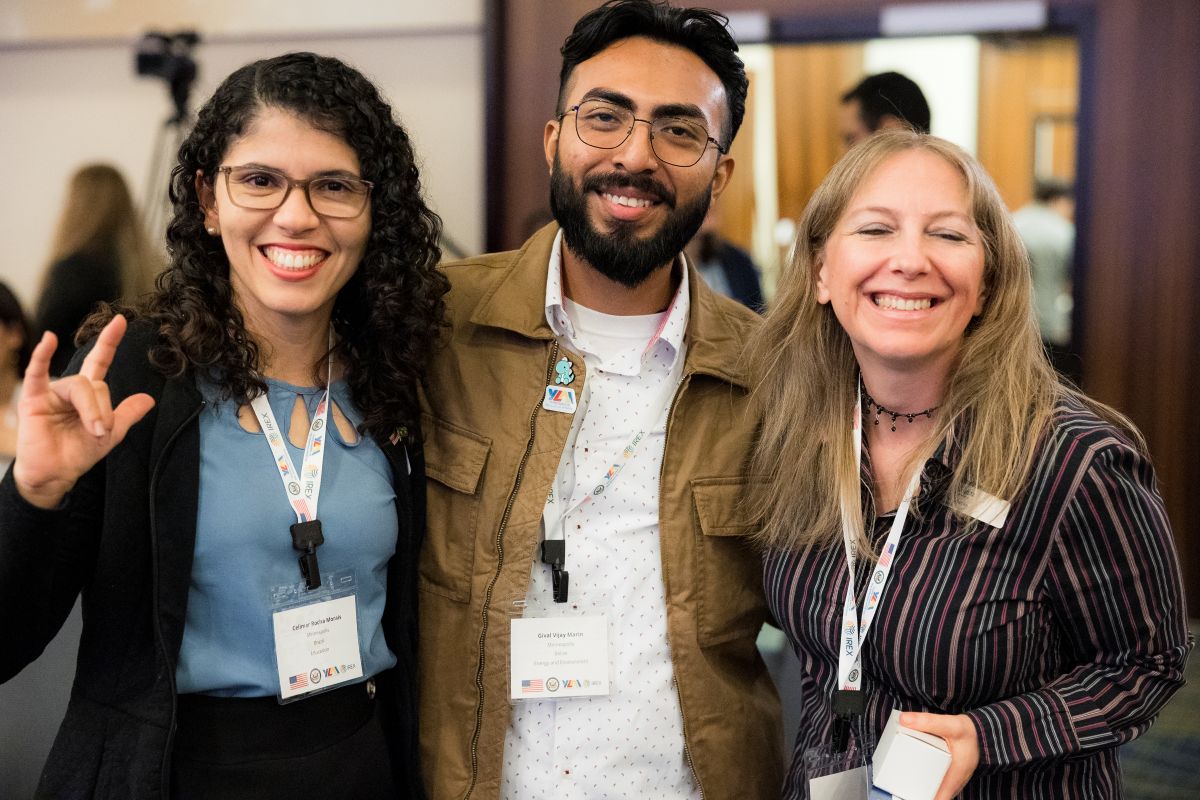Not all failure is created equal: Three insights to strengthen entrepreneurship support

Starting a venture—whether for-profit or social impact—has always been a high-stakes endeavor. Research shows that only 3–8% of entrepreneurs who experience business failure go on to start another venture, and those who do are 33% more likely to raise funds for their next one. The challenge is that not everyone begins entrepreneurship under the same conditions. Some founders benefit from financial cushions, supportive ecosystems, or cultures that view failure as part of the process. Others must launch their ventures in environments where failure carries lasting stigma, resources are scarce, and networks are difficult to access. This uneven playing field means that not all failure is created equal—and not everyone gets the same chance to recover and restart.
IREX has a long-standing role in supporting entrepreneurship worldwide. Through the Young Leaders of the Americas Initiative (YLAI), we’ve partnered with more than 1,800 emerging entrepreneurs and 1,200 companies across Latin America, the Caribbean, and Canada, to increase trade, encourage job creation, and build sustainable business networks. The Mandela Washington Fellowship (MWF) has connected over 9,000 social impact leaders from across Sub-Saharan Africa with U.S. businesses, universities, and local organizations to launch and scale ventures that tackle pressing challenges in their communities. We also implement the Pamoja Founders Program that supports food systems entrepreneurs across East Africa, the Clean Energy Incubator which has helped changemakers design new climate solutions, and youth-focused initiatives in Ukraine, where 350 youth-led enterprises contributed to recovery efforts during the war. Beyond these examples, IREX has supported entrepreneurship in Tunisia, Pakistan, Iraq, Eastern Europe, and other regions, reflecting the truly global nature of this work. Our experience provides valuable perspective on the factors that enable founders to persist in building their ventures.
To better understand what helps early-stage entrepreneurs persist—not just succeed—we conducted research with 116 entrepreneurs, 13 programs, and 10 partner organizations around the world. The study was diverse, spanning different regions, sectors, and contexts, and while there were differences between cultures and countries, we also found strikingly consistent patterns.
First-time and repeat founders need different support
One of the clearest distinctions we found was between first-time entrepreneurs and those who had tried before. First-time founders spoke of the need for resilience, adaptability, and exposure to peers who could relate to their struggles. Many highlighted the isolation of starting out without a network of others who understood the challenges.
“When you see best practices that work (and don’t work), that helps. This also helps mentally – it makes you realize the problem isn’t you. It’s bigger and you don’t need to give up.”
— Mykola Kysleiko, UNITY Program
Repeat founders, by contrast, focused more on technical skills like building partnerships, networking, or scaling a venture. Having already faced failure once, they prioritized tools that could take them further. What both groups shared was a deep appreciation for mentorship and community—often the decisive factors that kept them moving forward rather than giving up.
Not all risk is the same
We often picture entrepreneurs as natural risk-takers, but our research confirmed that risk-taking looks very different depending on context. Cultural attitudes, regulatory systems, and the presence—or absence—of safety nets shape how much risk a founder feels they can afford.
In some countries, a failed venture can be reframed as valuable experience, opening doors to new opportunities. In others, the same failure can close doors permanently, with reputational or financial consequences that make restarting nearly impossible. These “permission structures” operate at the personal, social, and systemic levels, and they determine who has the room to experiment and who does not. Without acknowledging these differences, entrepreneurship support risks favoring only those who already have the freedom to fail.
“In [Ukraine], many communities – especially in rural areas – have a lack of role models that have benefited from taking risks in creating a business. There is an anti-business mindset that has lingered from the Soviet era, and, as a result, more stigma if you try and fail.” - Alina Bocharnikova, UNITY Program
Investing in HERO traits fuels success
Finally, our research reaffirmed the importance of psychological resources—hope, self-efficacy, resilience, and optimism, often described as HERO traits. Collectively, these traits make up what researchers call psychological capital (PsyCap), a framework that has been shown to strengthen persistence and adaptability in the face of setbacks.
Entrepreneurs who develop HERO traits – whether through mentorship, peer learning, or direct training - are more likely to restart after failure, and more likely to succeed the second time.
This underscores the point: HERO traits are not abstract ideals. They are practical skills that help entrepreneurs recognize that setbacks are part of the process, not the end of the journey.
Why this matters
None of this diminishes the importance of technical skills, funding, or market access. But our findings expand the question from “How can we help entrepreneurs succeed?” to “How can we help them persist?” For the vast majority who face failure and never try again, this shift could mean the difference between ending their entrepreneurial journey and creating ventures that generate jobs, innovation, and social impact in their communities.
At IREX, we not only equip entrepreneurs to succeed once, but ensure they have the resilience, opportunity, and support to keep going—wherever in the world they are starting from.